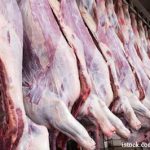New romaine lettuce requirements have been established by the Canadian government in the wake of multiple E. coli outbreaks linked to that product imported from the United States. This move caught industry off guard. From 2017 to 2019, romaine lettuce from California was linked to E. coli outbreaks in Canada and the United States. The Salinas Valley growing region was identified as a recurring source of some of these outbreaks. So temporary import measures put in place for romaine lettuce have been implemented to try to prevent contaminated food from entering the marketplace. As of October 7, 2020, the Canadian Food Inspection Agency (CFIA) will require importers to either provide proof that romaine lettuce being imported does not originate from counties in the Salinas Valley, or … [Read more...]
Canada Announces Monetary Penalties For Companies Violating Food Safety Rules
The Canadian Food Inspection Agency (CFIA) is going to begin issuing Administrative Monetary Penalties (AMPs) for violations by food businesses that violate federal food safety rules. The penalties will range from a Notice of Violation with no monetary penalty up to a maximum $15,000 for serious offenses or repeat violators. These penalties are another option the government can use to address violations. The press release states that, "By expanding the use of AMPs across all food sectors, the CFIA will now have a consistent and comprehensive set of tools to enforce compliance with the requirements for all food in Canada." Canada has been using AMPs in the meat sector since 2015. Amendments to the Agriculture and Agri-Food Administrative Monetary Penalties Regulations (AAAMPR) … [Read more...]
In Canada, Recalled Pork is Suspected Source of E. coli Outbreak
In Canada, recalled pork products are the suspected source of an E. coli outbreak that has sickened at least 14 people in Alberta. A February 16 recall has been updated to include additional information. The recalled raw pork and pork organ products, supplied by Hillview Meat Processor, may include raw muscle meat cuts, ground pork, sausages, and raw ready-to-eat products. They were sold fresh and frozen and were distributed only in Alberta. Consumers who have purchased they products should not eat them, nor should food service establishments, retailers, distributors and manufacturers in Alberta, use or sell them as E. coliO157:H7 can cause serious illness and death. Symptoms of an E. coli infection, which usually develop within one to three days of exposure, include abdominal … [Read more...]
CFIA Releases Microbiological Monitoring Program 2011-2012
The Canadian Food Inspection Agency (CFIA) has released its National Microbiological Monitoring Program 2011-2012 Annual Report. The report shows that more than 98% of foods sampled met Health Canada safety guidelines and standards. The government tests a wide range of food for microbial hazards and extraneous material such as glass and metal objects. The testing covers red meat, poultry products, shell eggs, egg products, dairy products, and fresh and processed fruit and vegetable 3products. The Canadian government requires that all foods must comply with the Food and Drugs Act and Regulations, which determine criteria for safe food and place restrictions on the production, importation, sale, composition, and content of food. The National Microbiological Monitoring Program samples … [Read more...]
Auditor General Critical of Canada’s Food Recall Procedures
Canada's Auditor General is critical of that country's food recall procedures. In the 2013 Fall Report, several areas that need improvement were listed. While the first three steps in the recall process, which includes identifying the issue, conducting an investigation, and making decisions worked well, follow-up activities were criticized. Chapter 4 of the report details the investigation of Canada's Food Recall System. The CFIA didn't have documentation it must collect to make sure that firms properly dispose of recall products or take action to identify and correct the underlying cause of the recall issue. In addition, the Canadian Food Inspection Agency's emergency procedures were not finalized or regularly tested. When the emergency response pan is activated, changes in governance … [Read more...]
Review of XL Foods Beef Recall and Outbreak Finds Problems
The review of the XL Foods Inc. beef recall and E. coli O157:H7 outbreak last year in Canada found that the Canadian Food Inspection Agency (CFIA) had a "relaxed attitude" toward safety standards and XL Foods did not act quickly enough to fix the problem. That outbreak, which occurred September and October 2012, sickened 18 people. The report lists similarities with the 2008 Listeria outbreak, which killed at least 20 people. Panel members met with beef producers and processors, health authorities and academics, the retail industry, and union representatives for XL Foods and the CFIA. Inadequate responses played the most critical part in the huge recall and outbreak. More than 1,800 products were removed from the market in Canada and in the United States. The Panel said, "we found a … [Read more...]
CFIA Suspends Operations at St. Ann’s Foods
The Canadian Food Inspection Agency (CFIA) has suspended operations at St. Ann's Foods, Establishment 287, effective February 7, 2013. The company failed to correct deficiencies in hygienic practices that were found in earlier inspections. While St. Ann's Foods had an acceptable action plan that they presented to the government, they did not demonstrate "consistent or full implementation of the corrective measures within the required timeframe and this has resulted in the license suspension." There are no food recalls associated with this suspension. No consumer illnesses have been reported in connection with any of St. Ann's Foods products. The plant is located in St. Ann's, Ontario. The facility slaughters and processes beef. … [Read more...]
Food & Water Watch Reveals Deregulated Foreign Meat Inspection Problems
Food & Water Watch released USDA inspection records this week from foreign meat plants that reveal problems of how deregulated meat inspection regimes can put US consumers at risk. The organization filed a Freedom of Information Act with the USDA's Food Safety and Inspection Service (FSIS) for foreign establishment audit checklists for all audits the agency conducted between 2009 and 2012. The Obama Administration ended the practice of posting individual plant checklists on its website. There were 155 pages in the release, which covered audit checklists from eight countries. Three examples, from Australia and Canada, reveal "conflicts of interest and long histories of poor food safety performance." Wenonah Hauter, executive director of Food & Water Watch, said in a statement, … [Read more...]
New Federal Food Safety Law for Canada
The Canadian House of Commons has approved Canada's new federal food safety law Bill S-11. The vote was unanimous. The plan was passed by the Senate in October 2012. The Canadian Food Inspection Agency (CFIA) has detailed provisions of the plan. Agriculture Minister Gerry Ritz said, "Canadian families will be better protected by the passage of the Safe Food for Canadians Act. The CFIA will have stronger modernized tools to better protect Canadians and enhance industry compliance. The huge XL Foods beef recall for the pathogen E. coli 0157:H7 this fall, which resulted in millions of pounds of ground beef and whole muscle beef products, may have played a part in the unanimous vote. So far, 16 people in Canada have been sickened by the outbreak strain of the bacteria. The XL plant was … [Read more...]













